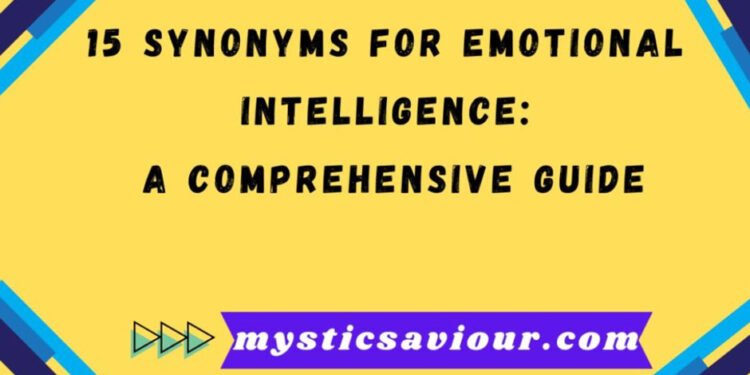The human experience is a rich tapestry woven with countless feelings, reactions, and states of mind. While the word ’emotion’ serves as a broad umbrella term, its frequent use can sometimes obscure the intricate subtleties of our inner world. To truly articulate the depth and variety of what we feel, a robust vocabulary of emotion synonyms becomes indispensable.
Understanding these alternatives allows for greater precision in communication, enabling individuals to express themselves more accurately and empathetically. This exploration delves into the diverse lexicon available to describe the vast spectrum of human emotional states.
The Core Concept of Emotion: A Starting Point
At its heart, an ’emotion’ is a complex psychological state involving three distinct components: a subjective experience, a physiological response, and a behavioral or expressive response. It is a fundamental aspect of human and animal existence, influencing thoughts, actions, and perceptions.
However, simply stating ’emotion’ can be vague. The power lies in choosing words that precisely capture the specific feeling, whether it’s joy, sorrow, anger, or fear, and their many variations.
Synonyms for Joy and Happiness: The Spectrum of Positive Feelings
When describing positive emotional states, a wealth of synonyms can convey different intensities and qualities of happiness. Beyond simple ‘joy’ or ‘happiness,’ one might use ‘elation’ for intense excitement, ‘bliss’ for perfect contentment, or ‘glee’ for exuberant delight, often accompanied by outward expression.
Other terms like ‘serenity’ suggest a calm, peaceful happiness, while ‘euphoria’ implies an overwhelming sense of well-being. Each word paints a slightly different picture, allowing for a more vivid and accurate portrayal of the feeling.
Synonyms for Sadness and Grief: Navigating Difficult Emotions
The realm of negative emotions, particularly sadness, also benefits from a diverse vocabulary. Instead of just ‘sadness,’ one could express ‘melancholy’ for a pensive, lingering sorrow, or ‘despair’ for a profound sense of hopelessness. ‘Grief’ specifically refers to deep sorrow, especially that caused by someone’s death.
Words like ‘anguish’ denote extreme suffering, while ‘woe’ suggests deep distress or misery. These distinctions are crucial for conveying the specific nature and intensity of a person’s emotional struggle, fostering deeper understanding.
Synonyms for Anger and Frustration: Expressing Displeasure
Anger, a powerful and often misunderstood emotion, also has many shades. Beyond ‘anger,’ one might use ‘fury’ for intense, uncontrolled rage, or ‘indignation’ for anger aroused by something unjust or unworthy. ‘Resentment’ describes bitter indignation at having been treated unfairly.
‘Frustration’ captures the feeling of being upset or annoyed, especially because of an inability to change or achieve something. ‘Irritation’ is a milder form of annoyance. Choosing the right synonym helps to clarify the source and intensity of the displeasure.
Synonyms for Fear and Anxiety: Confronting Apprehension
Fear, a primal emotion, manifests in various forms, each with its own synonym. ‘Anxiety’ refers to a feeling of worry, nervousness, or unease, typically about an event or something with an uncertain outcome. ‘Dread’ implies great fear or apprehension, often about something impending.
‘Terror’ signifies extreme fear, while ‘panic’ describes sudden, uncontrollable fear or anxiety. ‘Apprehension’ suggests a feeling of unease or nervousness that something bad or unpleasant will happen. These words help to differentiate between a mild unease and overwhelming fright.
The Importance of a Rich Emotional Vocabulary
A rich vocabulary of emotion synonyms is not merely an academic exercise; it is a vital tool for emotional intelligence and effective communication. It allows individuals to articulate their internal states with greater precision, leading to better self-awareness and improved interpersonal relationships.
Furthermore, in literature, psychology, and everyday conversation, the careful selection of an emotion synonym can profoundly impact the message conveyed, adding depth, empathy, and clarity. It transforms vague statements into vivid descriptions, making the human experience more relatable and understandable.












